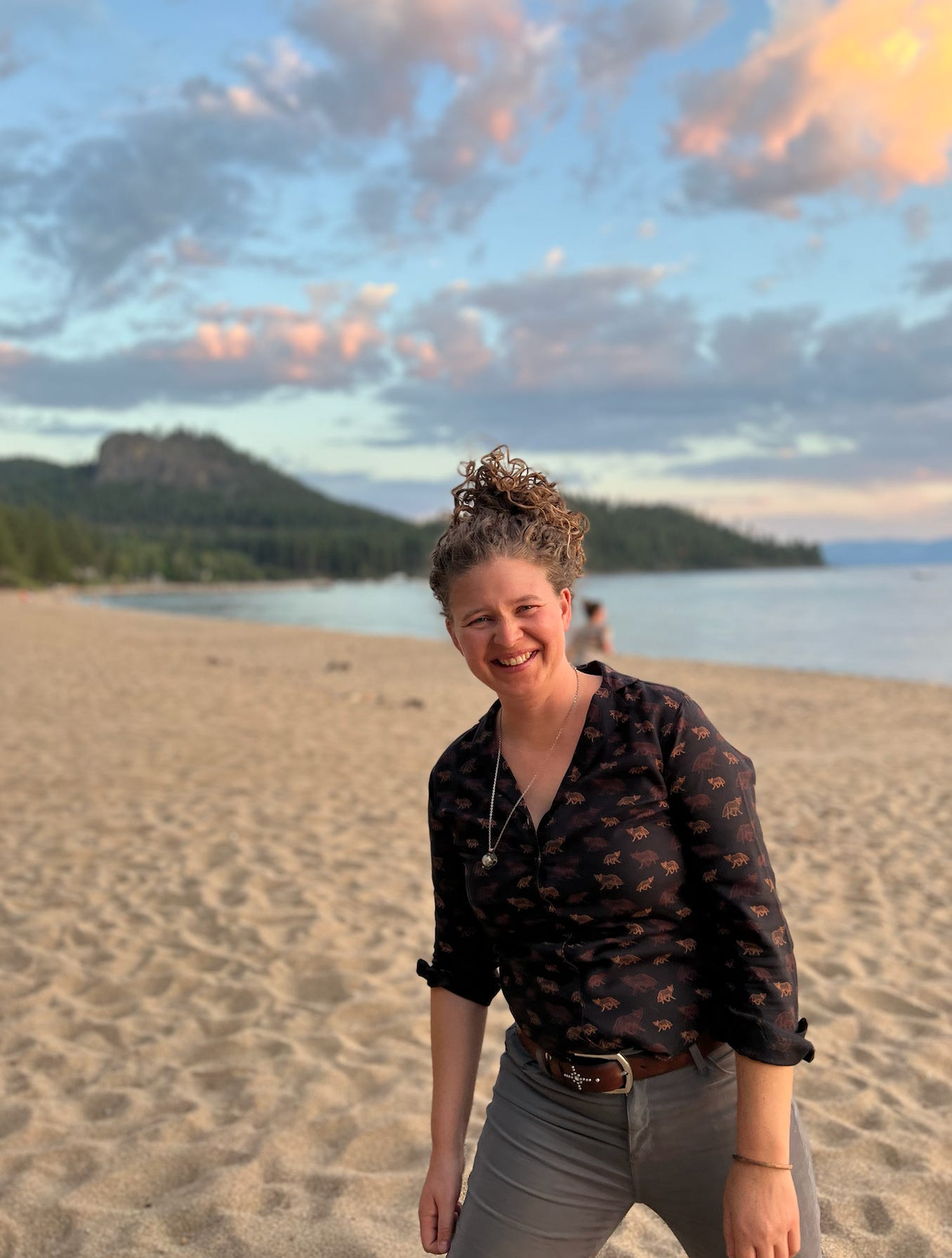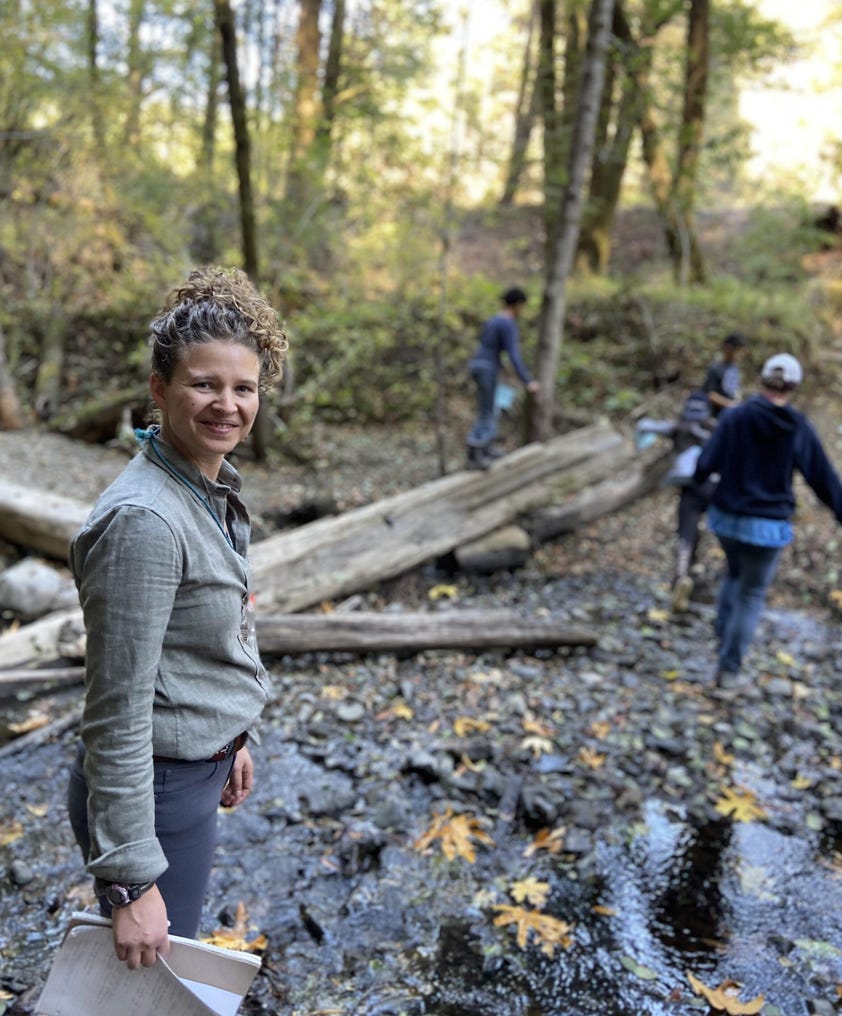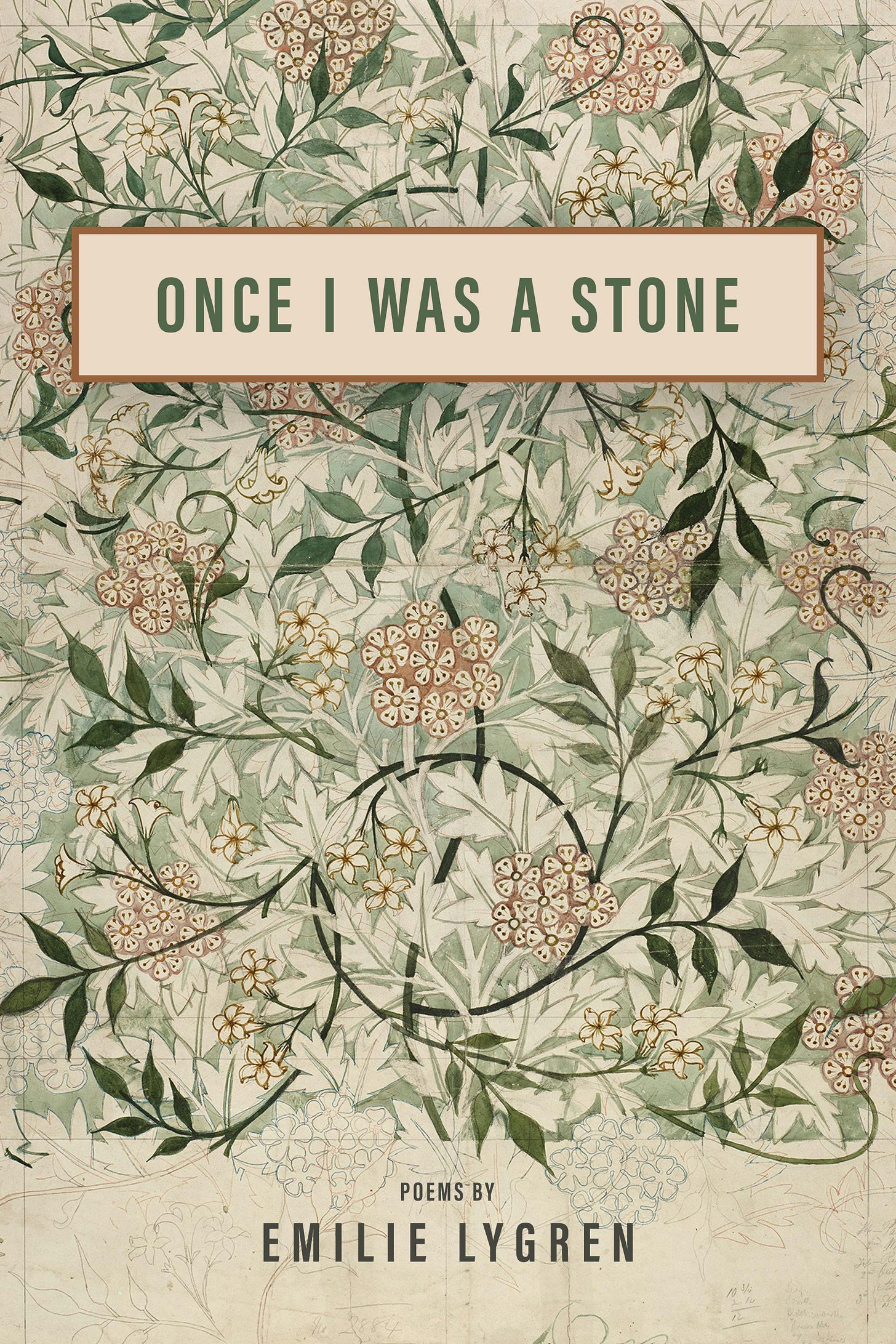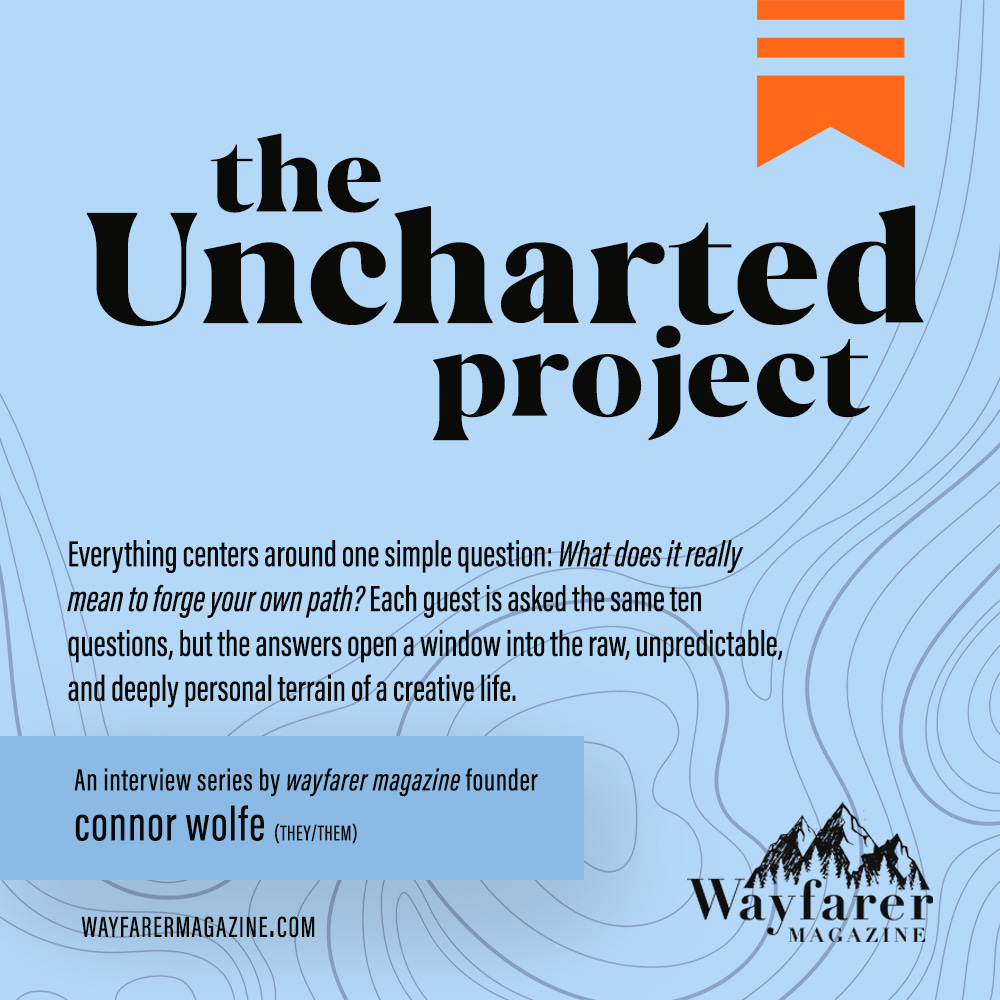UNCHARTED: Emilie Lygren
No map. No limits. Just the journey. An interview series by Connor Wolfe
Welcome to Uncharted: No map. No limits. Just the journey.
I’m Connor Wolfe, Founder of Wayfarer Books and Wayfarer Magazine, and I created this series around one simple question: What does it really mean to forge your own path? Each guest is asked the same ten questions, but the answers open a window into the raw, unpredictable, and deeply personal terrain of a creative life.
Today, we sit down with poet and educator Emilie Lygren, whose work is rooted in curiosity, reverence, and a deep engagement with the natural world.
Her poetry has appeared in over twenty literary journals, including Alaska Quarterly Review, Crab Creek Poetry Review, and Wildroof Journal, and her debut collection, What We Were Born For, won the Blue Light Book Award. The book was also selected by Young People’s Poet Laureate Naomi Shihab Nye as a Poetry Foundation monthly book pick in 2022.
Emilie has spent years bridging the literary and the scientific, developing outdoor science education, nature journaling guides, and social-emotional learning resources through her work at the Lawrence Hall of Science.
With a BA in Geology-Biology from Brown and an MFA from Maharishi International University, Emilie teaches creative writing in spaces as varied as classrooms, field stations, libraries, and parks. She currently lives on Coast Miwok land in San Rafael, California, where she’s at work on an anthology of poems on mental health for teens and youth.
Q. What’s lighting you up creatively right now?
I’m currently working on a poetry anthology for young adults focused on anxiety, depression, mental health, and healing. Reading poetry helped me immensely when I was a teen struggling with my mental health. It’s been really moving to curate poems in which adult authors write honestly about their own experiences and struggles. Working on the project has sparked some great conversations with fellow writers and with strangers in cafes and other spaces. Once I share the content of what I’m working on and share about my relationship with anxiety and depression, it opens a window for connection at a deeper level. I think one of poetry’s strengths is giving voice to what’s often kept just under the surface. Though there’s certainly more room to talk about struggles with mental health than there was when I was growing up, there’s still stigma around it. I hope this will be a book that young people can hold close during stressful times, and that the collection will help spark and normalize conversations about mental health.
Q. What’s the last thing that truly captivated you—an idea, a place, a piece of art, a poem, a moment?
I’m easily captivated. Right now I’m sitting on my patio, and in the last minute I’ve found myself captivated by a spider web woven across the surface of a large candle holder, by the shadow of a chair and the way it’s sharper in some places and more blurry in others, by the mint growing in the planter box next to my chair and the large galvanized metal tub it’s growing in, the sound of my partner practicing guitar just inside the house. Captivation is often where my writing begins, so it’s a mindset that I cultivate with intention.
Q. What’s a recent experience that made you feel deeply present?
It’s the rainy season in Northern California where I live. Since it doesn’t rain much (if at all) in summer and early fall, I love seeing the moss rehydrate. On a rainy and windy walk the other day, I lay my face on a particularly springy patch of moss and watched some ferns being gently nudged by the breeze and drops of water. Rain helps me remember to be present, helps me remember there are small moments of present available always right around me, if I take the time to pause.
Q. What’s a piece of art, a book, or a conversation that’s been living in your mind rent-free?
Recently I’ve been spending a lot of time with William Stafford’s poetry. He was such a poet of conscience, inquiring into what it means to live with integrity, and critiquing systems of power. I turn to his poems often as models for using writing to name injustice, and to attempt to close the gap between the world as it is and the world we hope to build.
Also, the Legendborn Cycle by Tracy Deonn. I’m a big YA literature fan, and this series is incredible–– so many layers of nuance, a compelling story, and vibrant, complex characters. I’ve had a hold on my calendar for the day the third book drops for months now. I get so consumed by reading fiction that my partner also has this date marked on his calendar, too–– because he’ll become what he calls a “YA Widow” until I finish the book and resurface into reality.
Q. What’s the most rebellious thing you’ve ever done in your creative work?
I don’t know that I feel too rebellious in my creative work. But I am often writing or teaching at the intersections of things, and find that the richest insights come when I’m dabbling at the edge of one field of study, while trying to bring in and integrate perspectives from another. Professionally, I’m an outdoor science educator and a poet, a combination that sometimes gets me confused looks. I’m always thinking about how to bring a scientific perspective into poetry, and I’m constantly bringing poems into the more scientific spaces I inhabit. This intentional shrinking of genre and discipline is a kind of rebellion.
Also, my next poetry collection focuses a lot on gender identity. These poems weren’t intended to be rebellious. I wrote them to understand myself better and to share about my experience. But the context of the world makes this book rebellious, especially during the current administration. I wish it didn’t feel rebellious. I wish it felt ordinary.
Q. If your younger self could see you now, what would surprise them the most? What would disappoint them?
I’ve done a lot of healing work over the last fifteen years. And while mental health is still a struggle for me at times, I’m no longer living in constant fear of people not liking me. My younger self might find that hard to believe.
I’ve always loved insects and spent many, many hours as a kid observing them. I think my younger self would be a little disappointed that I never became a field entomologist.
Q. What is a truth you’ve had to unlearn in order to grow?
As a kid I was often told that I was smart. In elementary school classes learning was often framed as memorizing and regurgitating facts. I was good at that. And while that felt like a good thing at the time, it also left me with a rigid sense of identity, one that relied on continuing to know things to be “smart” to get attention or to feel self-worth. I’ve done a lot of work on myself to unhitch my sense of self-worth from being “good” or “smart” (more on that journey in this blog post). This has involved unlearning what I thought learning was entirely and learning to value uncertainty and curiosity over a need to be right or to know the answer right away.
Q. What question are you currently trying to answer through your work?
Two questions that I’m constantly in relationship with are who am I and where am I. The answers to both questions are always changing. They’re also interrelated. “Who am I” is about staying tuned into myself, and trying to understand my conditioning, ancestry, lineage, and positionality. It also involves a lot of unlearning and striving to move with integrity, asking myself how to show up in a given moment or season of life. This leads me to “Where am I,” which is about noticing and being deeply present with my direct surroundings, particularly within nature, and also paying close attention to the communities, conditions, and time I’m inhabiting.
Q. What is pulling you forward right now?
Spring is a magnet. It’s my favorite season. I can feel the number of daylight hours starting to spill over. The first shooting star flowers are opening. I can almost hear the rest of the wildflowers drumming at their roots. I’m pulled forward in time by the anticipation of spring, my attention and gratitude on all that’s starting to grow.
Q. If your creative work is a map, where does it lead?
I don’t know where the map leads. That’s the fun part, I think. The pen is a companion for navigating uncertainty. To write is to reveal the map to myself, one inch at a time.
Connor Wolfe (they/them) is a writer, publisher, and advocate whose work spans over two decades and fourteen titles. Publishing from the margins of literary culture, Wolfe’s work has earned six Pushcart Prize nominations, the Gold Nautilus Medal for Poetry (2015), multiple Foreword Review Book Awards, and the Nautilus Silver Medal for Poetry (2022).
Wolfe is the founder of Wayfarer Books, an independent, trans-owned press committed to amplifying voices historically silenced by the mainstream. Their vision for literature as an act of resistance has shaped the press since its beginnings in 2011. Wolfe has served two terms on the Board of Directors for the Independent Book Publishers Association, delivered a TEDx Talk at Yale University, and completed a degree at Harvard University through grant programs.
After coming out as nonbinary and trans, Wolfe stepped further into national conversations around mental illness, erasure, and creative survival. Holding a degree in Psychology, they also studied Photojournalism under Samantha Appleton, former White House photographer for the Obama administration, sharpening their practice of bearing witness and telling the stories that often go unseen.
In 2024, Wolfe volunteered in the Collections Department of the Museum of Anthropology at Ghost Ranch, assisting in the preparation of sacred objects for repatriation under the revised Native American Graves Protection and Repatriation Act. After wintering off-grid in the high desert in the foothills of Pedernal, they are once again in motion, traveling with their three-legged black cat, momo, writing, documenting, and continuing the long walk home.






